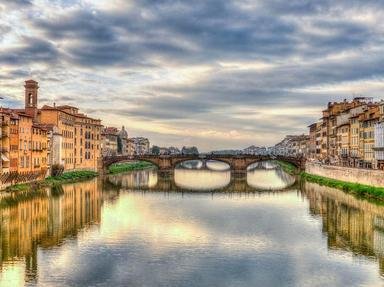Quiz Answer Key and Fun Facts
1. Where is the source of the Elbe?
2. What is the Czech name for the Elbe?
3. The first large town on the Elbe is called Hradec Kralove in Czech. Just outside the town the Prussians inflicted a devastating defeat on the Austrians in 1866, which resulted in the expulsion of Austria from Germany. By what name is the battle generally known in English?
4. Prague is on the Elbe.
5. On entering Germany, the Elbe passes through a range of mountains. What is this region between the Czech border (near Bad Schandau) and Pirna called?
6. Below Pirna the Elbe flows through a major city that was subjected to an exceptionally severe air raid by the Allies on 13-14 February 1945 - a raid that is still controversial. What is the city called?
7. There is a city on the Elbe that is often called the 'birthplace of the Reformation'. It is closely associated with Martin Luther - and also with Hamlet. What is it called?
8. This town is situated at the confluence of the Elbe and Mulde. It was home to the Bauhaus and also to the main Junkers aircraft factory. Which of these is it?
9. Further downstream in the Elbe lies the city that has been Germany's leading port since the 17th century. Which of these is it?
10. The Elbe flows into the North Sea at Cuxhaven. About 70 kilometres
(45 miles) offshore there are two small islands that were under British rule from 1815-1890. What are they called?
Source: Author
bloomsby
This quiz was reviewed by FunTrivia editor
minch before going online.
Any errors found in FunTrivia content are routinely corrected through our feedback system.

